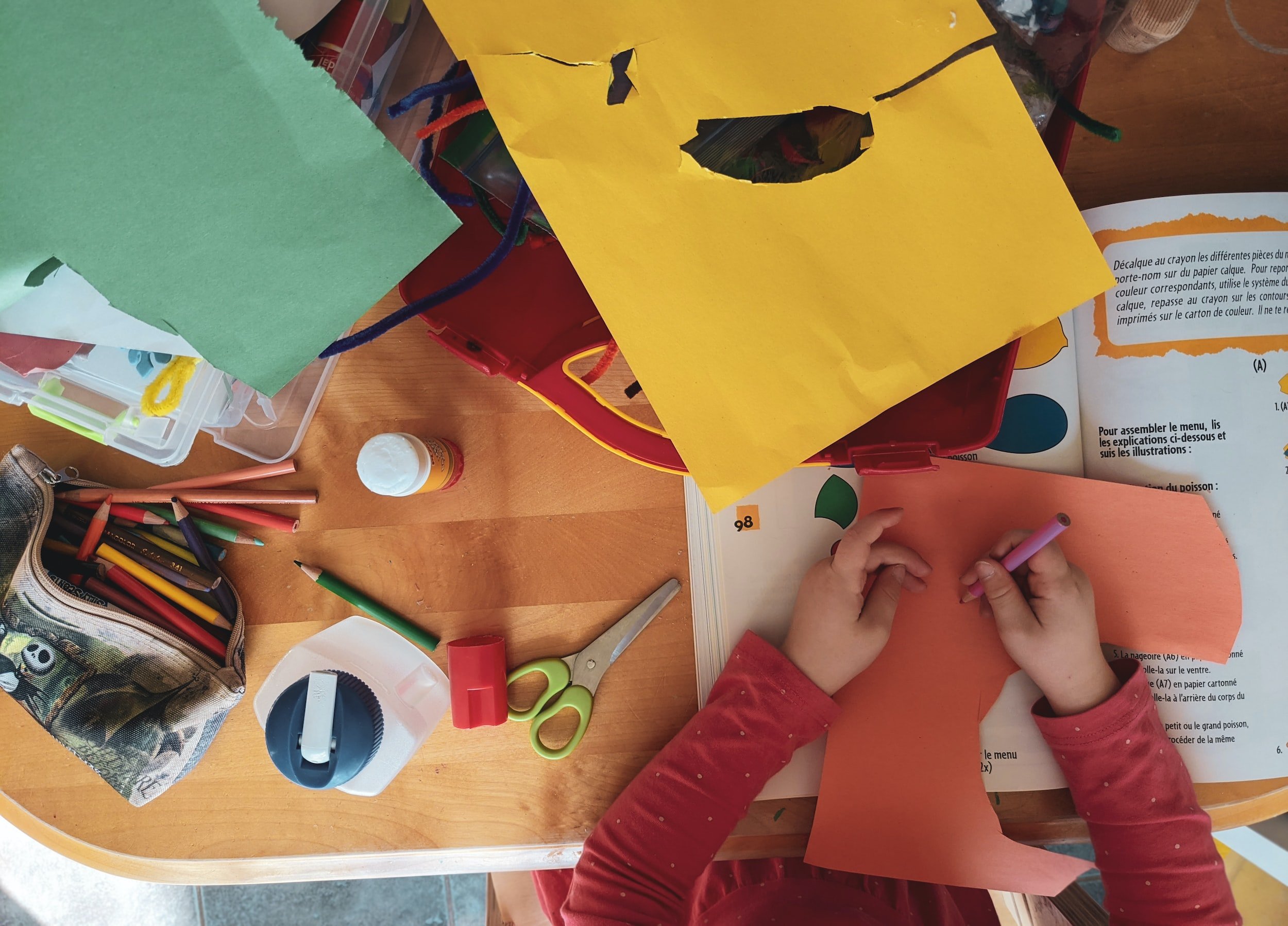How to Raise Your Sons and Daughters the Islamic Way
Children are among the greatest blessings of this dunya. They bring joy to our homes and hope to our hearts, and they carry our legacy into the future. At the same time, they are an amanah from Allah SWT—a trust that comes with responsibility and accountability. How we raise our children can bring us closer to Jannah, or may Allah protect us, lead us to regret on the Day of Judgment. Allah reminds us:
“O you who have believed, protect yourselves and your families from a Fire whose fuel is people and stones…” (Quran 66:6).
This verse is a wake-up call for us parents. Raising children is not just about feeding, clothing, and educating them. It is about nurturing their iman, shaping their character, and guiding them toward Allah SWT. Our Lord created sons and daughters with different natures, so we must raise them with wisdom that honors those differences while still giving them the same foundation of faith.
Raising Sons: Preparing Them for Leadership and Responsibility
Our sons will one day grow into men who are the shepherds of their households, entrusted with the care of their wives, children, and communities. This is not a position of privilege, but a position of accountability before Allah. The Prophet SAW said:
“Each of you is a shepherd, and each of you is responsible for his flock.” (Bukhari and Muslim)
Responsibility should not come suddenly at adulthood; it must be instilled from childhood. A son should be taught to carry responsibility early, even in small ways, like helping around the home, caring for younger siblings, or assisting in community tasks. He must also learn that provision is not optional but part of his manhood. Allah says:
“Men are the protectors and maintainers of women because Allah has given one more (strength) than the other and because they support them from their means.” (Quran 4:34)
Yet, leadership without mercy quickly becomes tyranny. This is why our sons must also learn gentleness. The Prophet SAW, though a leader of armies and nations, was the most merciful to his family. He carried his grandsons on his back during salah and mended his own clothes at home. This balance of strength with compassion is the model every Muslim boy should aspire to grow into.
Boys may be physically stronger, but they must be reminded that real strength lies not in overpowering others but in mastering themselves. The Prophet SAW said:
“The strong man is not the one who throws others down, but the strong man is the one who controls himself when angry.” (Bukhari and Muslim)
A son must also understand that women are honored in Islam. By teaching respect and kindness to females, boys grow into men who nurture harmony in marriage and in society. The Prophet SAW said:
“The best of you are those who are best to their wives.” (Tirmidhi)
Part of this responsibility is financial. Providing for their families is a man’s duty; therefore, sons must be taught how to earn through halal means and to spend responsibly. Allah says:
“Do not consume one another’s wealth unjustly but only [in lawful] business by mutual consent.” (Quran 4:29)
Finally, no son’s upbringing is complete without a strong connection to salah and the masjid. From a young age, he should be inspired by the great men of Islamic history—the strength and justice of Umar ibn al-Khattab (RA), the gentleness of Uthman ibn Affan (RA), the bravery of Ali ibn Abi Talib (RA), and above all, the perfect character of the Prophet SAW himself.
Raising Daughters: Protecting Their Honor and Cultivating Their Strength
The Prophet SAW raised his daughters with love, respect, and gentleness. When Fatima (RA) entered the room, he would stand, kiss her forehead, and seat her beside him. This tender example shows us just how precious daughters are in Islam. He SAW also said:
“Whoever has two daughters and treats them kindly, they will be a protection for him from the Hellfire.” (Ibn Majah)
Our daughters must be raised with a sense of worth and that they are honored in Islam, not only for their outward beauty or worldly achievements, but mainly for their taqwa and modesty. Haya is their crown, not their cage. Allah commands:
“And tell the believing women to lower their gaze and guard their chastity and not display their beauty except what is apparent of it…” (Quran 24:31)
Education should be a priority, but it should be predominantly in the deen. A daughter grounded in the Quran, Sunnah, and Islamic knowledge will grow into a wife, mother, teacher, and community member who guides her children and others with wisdom. Just as Aisha (RA) combined knowledge with life skills, we can learn from her example.
Homemaking skills, too, are not oppression but an empowerment. Cooking, cleaning, and child-rearing prepare a daughter for family life, just as the wives of the Prophet SAW were knowledgeable yet capable within the home. These skills preserve her role as a nurturer and caretaker while also equipping her to manage her household with excellence.
At the same time, daughters need to develop emotional maturity. They must learn to understand their fitra and hormones in order to face the trials of life with patience, resilience, and faith in their hearts. Allah SWT assures us:
“Indeed, with hardship [will be] ease.” (Quran 94:6)
The Prophet SAW said:
"No fatigue, nor disease, nor sorrow, nor sadness, nor hurt, nor distress befalls a Muslim, even if it were the prick he receives from a thorn, but that Allah expiates some of his sins for that." (Sahih Bukhari)
Finally, our daughters should be given strong role models to look up to. They should learn about Maryam (AS) for her devotion, Aisha (RA) for her knowledge, Khadija (RA) for her wisdom and loyalty, and Fatima (RA) for her simplicity and piety. These women prove that dignity, modesty, and strength can all exist together in the heart of a Muslima.
Raising Both Sons and Daughters: The Shared Foundation
Though their roles differ, sons and daughters share the same spiritual duties. Both must be raised to worship Allah SWT, fulfill obligations, and develop noble character. The Prophet SAW said:
“The best among you are those who have the best manners and character.” (Bukhari)
That means teaching all our children:
To know their ultimate purpose in life is to submit to the will of Allah. Our Lord says:.
“And I did not create the jinn and mankind except to worship Me.” (Quran 51:56)
To hold on to their salah and never abandon any of their fards by default. Allah says:
“Establish prayer and encourage your family to do so.” (Quran 20:132)
To love the Quran from a young age and to know that it is the word of their Lord speaking to them. Allah says:
“This is the Book (the Quran), whereof there is no doubt, a guidance to those who are Al-Muttaqoon (the pious and righteous) and love Allah much.” (Quran 2:2)
To protect themselves from zina, lying, backbiting, and all forbidden actions. They should know that relationships outside of marriage are forbidden and that early nikah is the pure path. Allah says:
“Do not approach unlawful sexual intercourse. Indeed, it is ever an immorality and is evil as a way.” (Quran 17:32)
To speak with adhab—manners, truth, kindness, good etiquette, and gratitude. The Prophet SAW said:
“The best among you are those who have the best manners and character.” (Bukhari)
To respect their elders and teachers and be humble in an egocentric world.
To turn to dua for help, tahajjud for a strong heart, istikhara for decisions, and dhikr for remembrance of Allah SWT.
To learn how to communicate with people, understand gender differences, keep good friendships, and avoid toxic people and situations.
To take care of their physical, mental, emotional, and spiritual natures, as sincere ibadah is not possible without this.
To avoid whatever Allah has forbidden (haram), whether in public or in private (gambling, drinking, cheating, stealing, etc.).
To be responsible and look after their own and others’ belongings, to help in the home by doing chores and cleaning up after themselves.
To honor and serve their parents, and take care of them when they are old or sick, as Allah says:
“And We have enjoined upon man [care] for his parents…” (Quran 29:8)
We must also raise both our sons and daughters with a love of balance like the Prophet SAW. They must learn to have discipline with compassion, structure with joy, and responsibility with encouragement.
When you make a home for your children that is filled with both love and boundaries, it develops children who are emotionally secure and spiritually grounded.
A Final Reminder
Parenting is not about raising our sons and daughters identically. It is about honoring their unique natures while raising them on the same foundation of tawheed and good character. When we give our sons the tools to lead with justice and our daughters the dignity of modesty, we are raising the next ummah of believers.
Here is a dua that every parent should say daily from the Quran:
“Our Lord, grant us from among our spouses and offspring comfort to our eyes and make us an example for the righteous.” (Quran 25:74)
May Allah bless our parenting, guide our sons and daughters, and make them a means of sadaqah jariyah for us in this world and the next. Ameen.
Salaam, I’m Zakeeya
I believe our homes are meant to be havens of sakina—places where families feel safe, nurtured, and loved. Since 2011, I’ve been dedicated to helping Muslim women find tranquility in their roles, care for themselves with dignity, and achieve inner peace. Drawing on my years of experience as a wife, mother, and mentor, I share tools and guidance to help you face life’s challenges with more gratitude and mindfulness. Here, you’ll find Muslima, wifehood, motherhood, and lifestyle insights to make your journey as a woman more fulfilling, inshallah. Read more about me here.
Get Support For Your Struggles
You don’t need to suffer alone
Life’s tough, but so are you. You simply need direction and help from someone experienced, empathetic, and understanding.
































